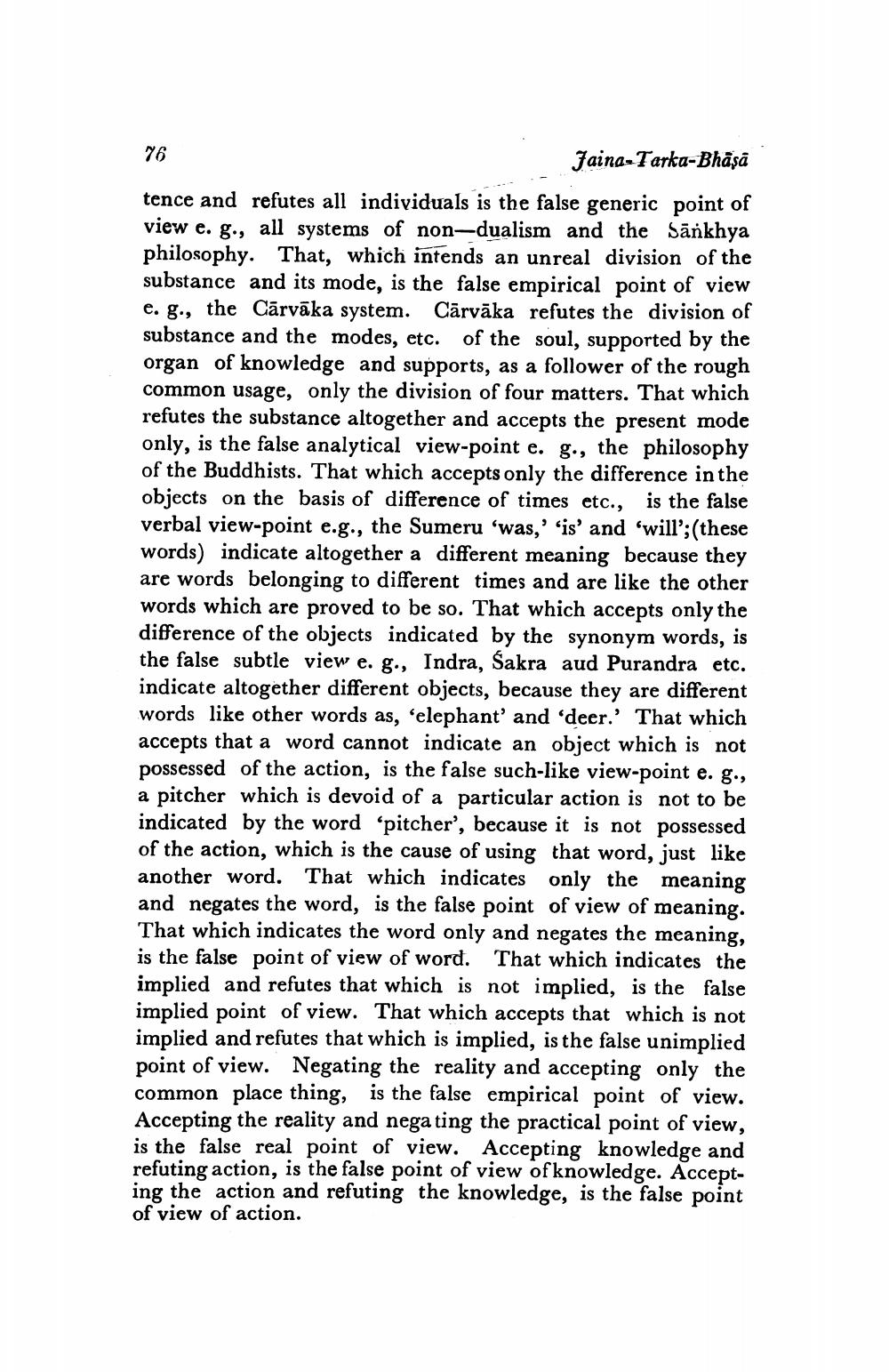________________
76
Faina. Tarka-Bhāşa
tence and refutes all individuals is the false generic point of view e. g., all systems of non-dualism and the Sānkhya philosophy. That, which intends an unreal division of the substance and its mode, is the false empirical point of view e. g., the Cārvāka system. Cārvāka refutes the division of substance and the modes, etc. of the soul, supported by the organ of knowledge and supports, as a follower of the rough common usage, only the division of four matters. That which refutes the substance altogether and accepts the present mode only, is the false analytical view-point e. g., the philosophy of the Buddhists. That which accepts only the difference in the objects on the basis of difference of times etc., is the false verbal view-point e.g., the Sumeru ‘was,' 'is' and 'will’;(these words) indicate altogether a different meaning because they are words belonging to different times and are like the other words which are proved to be so. That which accepts only the difference of the objects indicated by the synonym words, is the false subtle view e. g., Indra, Sakra aud Purandra etc. indicate altogether different objects, because they are different words like other words as, 'elephant' and 'deer.' That which accepts that a word cannot indicate an object which is not possessed of the action, is the false such-like view-point e. g., a pitcher which is devoid of a particular action is not to be indicated by the word 'pitcher', because it is not possessed of the action, which is the cause of using that word, just like another word. That which indicates only the meaning and negates the word, is the false point of view of meaning. That which indicates the word only and negates the meaning, is the false point of view of word. That which indicates the implied and refutes that which is not implied, is the false implied point of view. That which accepts that which is not implied and refutes that which is implied, is the false unimplied point of view. Negating the reality and accepting only the common place thing, is the false empirical point of view. Accepting the reality and negating the practical point of view, is the false real point of view. Accepting knowledge and refuting action, is the false point of view of knowledge. Accepting the action and refuting the knowledge, is the false point of view of action.




